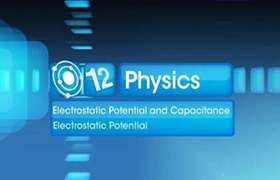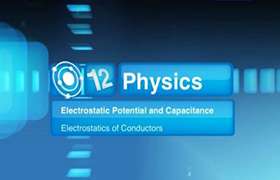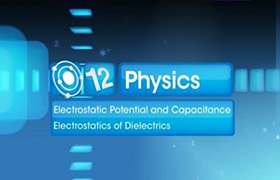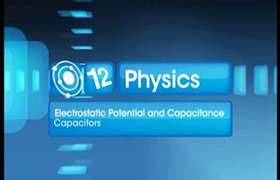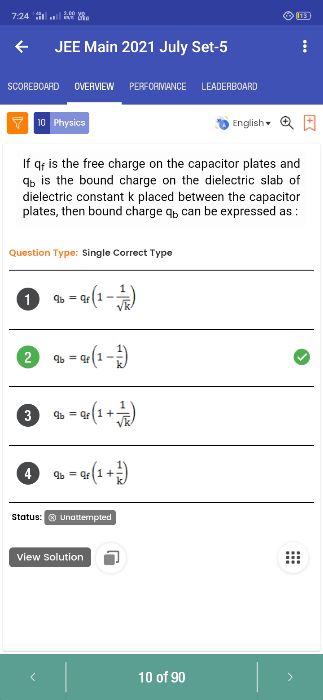CBSE Class 12-science Answered
Dear Student
In this question, first you need to calculate the energy of the first capacitor initially and then you need to calculate the energies of both the capacitors finally, and the difference in the energy of initial capacitor and the combined final energies of the 2 capacitors will give you the energy loss.
So, initially the energy of the capacitor is given by (1/2)C*V*V, where C is the capacitance and V is the voltage between the terminals of the capacitor.
So, the initial energy , let us say E1 = (1/2)C*V*V =(1/2)*600pf*200*200 = 12000000 pJ = 12*10-6J as 1pf = 10-12 farad.
so, E1 = 12*10-6J
Now when we connect that capacitor to the uncharged capacitor 2 things happen
1- charge goes from charged to uncharged capacitor but the total charge will remain fixed as charge can not escape from anywhere.
2- the voltage between the terminals of both the capacitotrs will be same as both terminals are now connected.
so let us say the final common voltage is V
so total final charge = initial charge
and charge of a capacitor is given by q= CV
so, v(C1+c2)= 600*200pC
or, v (1200pf)= 120000pf
so V= 100V
so final energy = 1/2(c1+c2)*V*V = 1/2 * 1200 *100*100 = 6000000pJ = 6 *10-6 J
so differnece in energy = (12-6)* 10-6 J= 6 *10-6 J
this is the energy lost in the process.
We hope that clarifies your query.
Regards
Team
TopperLearning

